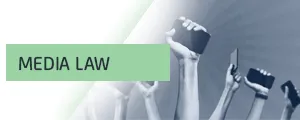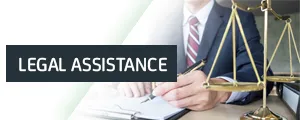Who controls you and how they do it
No wonder that journalists were worried about the joint order of the Ministry of Information and Communication (MIC) and Ministry of the National Economy of the Republic of Kazakhstan “On approval of risk assessment criteria and checklist for compliance with the legislation of the Republic of Kazakhstan on mass media” - there never had been any good news for the MIC. Moreover, the document is written in such a way that it is extremely hard to understand it.
It cost our lawyers, who are really experienced in decoding lexiphanicisms, a lot of time, erudition and intellect to understand the document. Here is what we they found out.
Where it's all coming from
The first origin of this document is the Business Code. The definition of risk is taken from it: “The risk is the probability of causing harm as a result of the activity of the subject of control and supervision of human life or health, the environment, the legitimate interests of individuals and legal entities, the property interests of the state, taking into account the severity of its consequences.” The order that confused journalists was issued in order to reduce the potential harmfulness of the media.
HOW THEY CONTROL US
If you plow through the jungles of subjects, objects, supervisions, controls, risks and their criteria, unscheduled inspections, preventive and other types of controls, you will not come to any new conclusion: the media is under control! The owners of printed media are controlled more thoroughly and, accordingly, the owners of news agencies, online editions and Internet resources are considered to be at lower risk. (Television and radio were not in the list of risky objects - either they were overlooked or they will be "awarded" a separate order after some time). It is a rhetorical question how printed media with their 5-10 thousand copies can do more harm than online news agencies and bloggers.
Inspection, control and supervision are carefully regulated. Control may be performed in person -“ an onsite visit” meant for subjects (objects) with a high degree of risk. It is clear that visiting the owner of the printed media is much easier than the owners of online publications and Internet resources! Find them if you can! Maybe it was the reason why printed media got a scolding? (Let us not comment the unusual synonymous series of objects-subjects, although according to the literary standards and logic, the “object” is what is being controlled, the “subject” is the one who controls).
WHO CONTROLS US
What harm do the controllers try to prevent? Special degrees of violations have been developed for identifying the levelof harm: gross, significant, insignificant. In order to figure out how to qualify a violation, inspectors should use the procedure for calculating the indicator of the risk degree use formulas that holders of BA in mathematics can understand. We are not ones of those. (Perhaps such people work at the local departments of the Ministry of Information? No wonder those departments were legalized by last year's amendments to the law on the media). Do not be upset if there is no mathematicians among your friends - everything is to be clear from the checklists. Violation of a formal provision of the law on the media - a minor violation, violation of a prohibition of the same law wil be followed by strict control, advertising alcohol and so on will be followed by “preventive control with an onsite visit to the subject (object) of control”.
So, watch out, colleagues, lie low. Then, perhaps, the principle of encouraging bona fide subjects of control and supervision in the form of mitigating indicators will be applied to you.
We have some serious doubts about the legality of a number of provisions of the Order. We will state them in a separate letter to the Ministry of Information and Communications and will definitely publish their answer.





